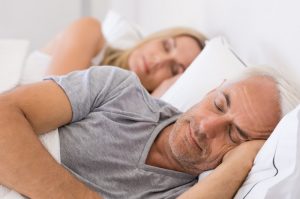
In this blog, the sleep specialists at eos sleep detail how these mouth guards help with sleep apnea.
What is oral appliance therapy?
Oral appliances are custom-designed plastic devices that are similar to an orthodontic retainer or a sports mouth guard. They’re worn only at night as a treatment for sleep apnea and snoring, and they work by supporting the jaw in a forward position and preventing the tongue and soft tissues in the back of the throat from collapsing during sleep. By keeping your airway open, an oral appliance can help alleviate snoring and sleep apnea.
This type of treatment is often used as an alternative to a CPAP (continuous positive airway pressure) machine, which many patients find difficult to use.
What is it used for?
Oral appliance therapy can be used for the following:
- Mild or moderate cases of sleep apnea
- Treating sleep apnea in patients who can’t or don’t want to use CPAP
- Chronic loud snoring
- Airway obstruction
- Low oxygen levels in the blood
In addition, by treating sleep apnea, symptoms of this sleep disorder, including morning headaches and excessive daytime sleepiness, should also improve. Your risk of certain chronic diseases – such as type 2 diabetes and heart disease – may also fall, since sleep apnea can cause an increased risk of developing these serious issues.
How does it work?
Your doctor will determine if oral appliance therapy is likely to help you and if so, will have a device custom-made for you. Your appliance may be categorized as one of the following:
- Tongue-retaining appliance – repositions the tongue to prevent airway blockage
- Mandibular advancement device – repositions the lower jaw to prevent airway blockage
How does it help with sleep apnea?
An oral appliance gently repositions your tongue and jaw during sleep, which helps keep your airway open. An obstructed airway is associated with sleep apnea since this makes it difficult for you to get an adequate breath in.
As your brain senses that you’re having trouble breathing, it briefly interrupts your sleep so you can reopen your airway. This can cause you to make a snorting or choking sound, and it can happen hundreds of time a night, without you ever fully waking up and being aware of it.
If you snore or have been diagnosed with sleep apnea and are looking for a CPAP alternative, make an appointment today with eos sleep. We’ll talk with you about your symptoms and medical history, and if necessary, we’ll order a sleep study to gather more information. After we diagnose the problem and its severity, we can recommend the most effective treatments.
